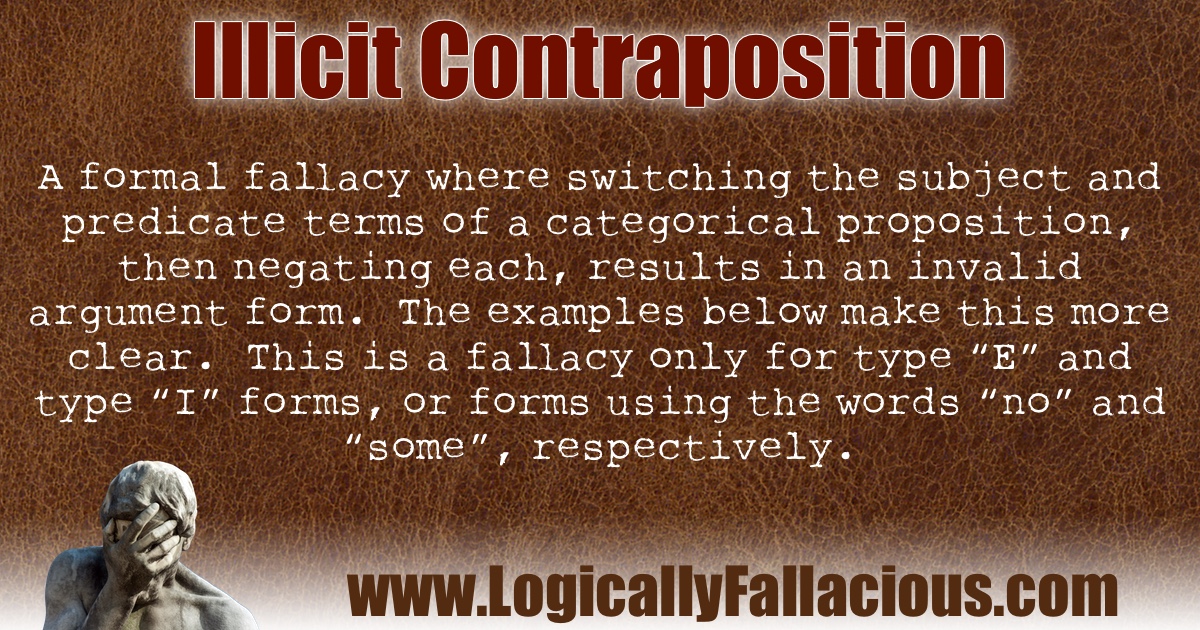New Terminology:
Illicit: Forbidden by the rules, or in our cases, by the laws of logic.
Contraposition: Switching the subject and predicate terms of a categorical proposition, and negating each.
Description: A formal fallacy where switching the subject and predicate terms of a categorical proposition, then negating each, results in an invalid argument form. The examples below make this more clear. This is a fallacy only for type “E” and type “I” forms, or forms using the words “no” and “some”, respectively.
Logical Forms:
No S are P.
Therefore, no non-P are non-S.
Some S are P.
Therefore, some non-P are non-S.
Example #1:
No Catholics are Jews.
Therefore, no non-Jews are non-Catholics. (contraposition)
Explanation: By definition, no Catholics are Jews (using type “E” form here) -- clear enough. Now let’s take the contraposition of that proposition by switching the placement of “Catholics” and “Jews”, and negating each, and we can see we have a false proposition. “No non-Jews are non-Catholics” clearly does not mean the same thing as “No Catholics are Jews”. In this example, the premise is true but the conclusion is false (I am a non-Jew and a non-Catholic, and statistically speaking, you probably are too.)
Example #2:
Some dogs bark.
Therefore, some non-barking things are non-dogs. (contraposition)
Explanation: We now see the type “I” form in action, stating, “Some” dogs bark. This is true, but that really does not matter in determining what form of an argument is valid or not. The conclusion, “some non-barking things are non-dogs” is also a true statement (my toothbrush, which is a non-dog, does not bark), but this does not matter either. What does matter, is that it does not logically follow. Don’t be misled by truth! Focus on the form of the argument. If we substitute other terms we can see the fallacy more clearly:
Some humans are mortal.
Therefore, some immortals are non-human. (contraposition)
By using the word, “some”, we are not asserting that there are definitely some that are not. Above, just by saying that some humans are mortal, we automatically are saying that there are others who are not mortal. Therefore, our conclusion is supposing a group that does not exist, thus fallacious.
Exception: None, but remember that the following type “A” and type “O” forms are valid:
All P are Q.
Therefore, all non-Q are non-P.
Some P are not Q.
Therefore, some non-Q are not non-P.
Using the type “A” form, let’s say that all humans are mortals. The contraposition: all immortals are non-human. Not only does this make sense in terms of truth, but it follows necessarily from the premise; therefore, it is valid (and not a fallacy).
Tip: Don’t give up on formal fallacies! Once you get it, it actually will help you in everyday reasoning.
